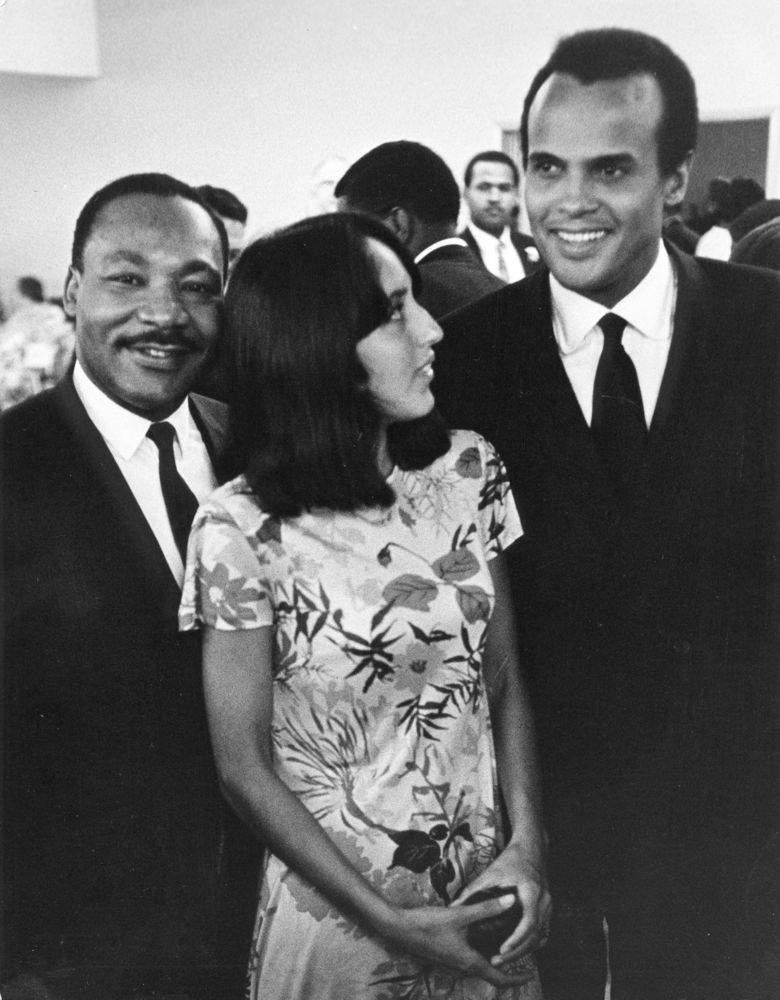- Home
- About Us
- Housing
- Resources
- Contact Us
-
-
-
Address: 223 S. Winnebago Street Rockford, IL 61102
Phone: 815-489-8500
-
-
- Updates
-

Address: 223 S. Winnebago Street Rockford, IL 61102
Phone: 815-489-8500
Address: 223 S. Winnebago Street Rockford, IL 61102
Phone: 815-489-8500


In honor of Women’s History Month 2024, the Rockford Housing Authority proudly presents a celebration of the remarkable life and contributions of Joan Baez. An icon of the 1960s, Joan Baez is renowned not only for her angelic voice and captivating music but also for her unwavering dedication to social justice and activism.
Born on January 9, 1941, in Staten Island, New York, Joan Chandos Baez was raised in a household deeply rooted in Quaker values. These early influences laid the foundation for her lifelong commitment to peace, equality, and human rights.
Joan’s journey to prominence began with her mesmerizing performances at the Newport Folk Festival in 1959 and 1960. Her hauntingly beautiful voice breathed life into traditional folk songs, capturing the hearts of audiences across the nation. It was here that Joan’s path intersected with the rising tides of social change that defined the era.
Central to Joan Baez’s legacy is her steadfast support for the civil rights movement. In 1963, she stood alongside Dr. Martin Luther King, Jr. at the historic March on Washington, delivering a soul-stirring rendition of “We Shall Overcome.” This anthem of resilience and unity became synonymous with the struggle for racial equality, echoing across the nation as a rallying cry for justice.
As the turbulence of the 1960s unfolded, Joan’s voice resonated at the forefront of the anti-war movement. Her songs, including “Where Have All the Flowers Gone” and “Draft Dodger Rag,” became anthems for those advocating for peace during the Vietnam War. Through her music, Joan Baez channeled the collective yearning for a world free from the ravages of conflict.
Yet, Joan’s activism extended beyond the realms of music and protest. In 1965, she took a monumental step by founding the Institute for the Study of Non-Violence in Carmel, California. This institution stood as a beacon of hope, advocating for peaceful resolutions to societal conflicts and inspiring future generations of activists.
Joan Baez’s impact transcended borders and boundaries. She lent her voice to countless civil rights marches and rallies, using her platform to amplify the voices of the marginalized and oppressed. Her free concert appearances in support of UNESCO and other humanitarian causes underscored her unwavering commitment to creating a more just and equitable world.
In the tapestry of Women’s History, Joan Baez stands as a luminary, illuminating the path with her unwavering courage and tireless advocacy. Her music became the soundtrack of a generation, weaving together threads of hope, resilience, and solidarity.
As we celebrate RHA Women’s History Month in 2024, let us honor the indelible legacy of Joan Baez. May her voice continue to inspire us to stand up for what is right, to speak out against injustice, and to forge a future guided by the timeless principles of peace and equality.
In the words of Joan Baez herself, “Action is the antidote to despair.” Let us heed these words and carry forward her spirit of activism, ensuring that her legacy of courage and compassion endures for generations to come.

To continue to create strategic partnerships with community stakeholders, design a diverse housing portfolio, leverage social service programming to unite and ensure residents are provided with safe and nurturing environments that lead to self-sufficiency, responsibility, and individual empowerment.
This Earth Day, let's unite for a brighter future!
Today, we're reminded of the importance of our planet and the role each of us plays in protecting it.
View the RHA Earth Day 2024 Blog here:
https://rockfordha.org/earth-day-2024/
Effective today, Monday, April 22, 2024, the current RHA Low-Income Public Housing (LIPH) Family Waiting List will open until further notice. Pre-applications can be completed online at https://www.rockfordhousingauthority.com/ and are available at 223 S. Winnebago Street Rockford, IL 61102.
#RHA
Let's come together to celebrate Diversity Month by acknowledging the beauty found in our distinct backgrounds, viewpoints, and identities. #RHA #MovingForwardTogether

Within 5 years the RHA will re-establish itself as high performing agency that is a leader in housing and sustainable communities by developing additional, non-HUD revenue streams, increasing our asset base and offering state of the art resident initiatives.